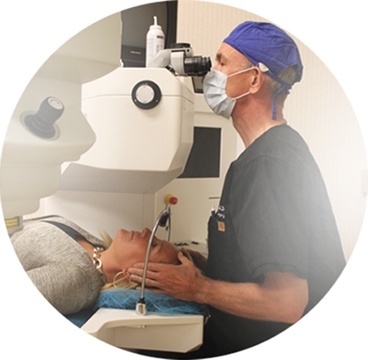Common Eye Problems and What to Know About Them
Most of us take our eyesight for granted, that is until we start noticing changes and seek the advice of an optometrist. While eye problems can...
2 min read
Guest Author, Scott Sanders : Jan 8, 2020 11:58:00 AM

 Terminal Cancer: What Costs Come with a Diagnosis and How to Begin to Cover Them
Terminal Cancer: What Costs Come with a Diagnosis and How to Begin to Cover Them
There are many different types of cancers, and each has the potential to ruin a life. Eye cancer, for example, which may also be called primary intraocular cancer or uveal metastases, depending on where it originated, can inhibit full range of vision and cause darkening of the iris. With early intervention, eye cancer is often treatable, and most people can expect a positive 5-year survival rate. But some types of cancer are harder to detect and to treat. These often spread and become incurable. This is called terminal cancer.
Terminal cancer, also known as end-stage cancer, is a cancer that cannot be cured and will eventually lead to death. It’s shocking to hear a diagnosis like this -- whether it be you or a loved one. Although terminal cancer patients don’t usually receive treatment in an attempt to cure their cancer, they often receive palliative treatments intended to prolong life. Regardless of treatment, there are still costs to contend with. Here’s a starter guide on covering those costs.
What Costs Will I Incur?
That largely depends on the type of cancer, the stage of its progression, and your personal choices. Some of the expected possible costs include but are not limited to doctors visits, medication, treatment, hospital stays, in-home caregiving, nursing care.
Then there are the “hidden” costs, which include transportation fees (gas, car usage, bus, even plane fare) to get to treatments and doctor visits, food costs (special diets are often required for cancer patients), and legal fees (living wills, trusts, estate planning). For some patients, there are programs and resources available to cover these types of costs.
What If I Have Medicare?
If you have private health insurance, check with your provider and get specific about costs. Set a meeting with a rep and determine exactly what will be and what won’t be covered. This can help you figure out which treatments you want and which you don’t want to bother with.
Many terminal cancer patients are insured through the Medicare/Medicaid ecosystem. What will Medicare cover? Medicare Part A will cover a variety of hospitalization costs, but you should select Part B for extra coverage related to outpatient treatments.
Consider Medicare Advantage
Beefing up your Medicare coverage is worth doing if you’re a senior and you receive a terminal cancer diagnosis. Medicare Advantage plans (or Medicare Part C) cover everything your typical (A & B) plans cover, but they will also provide supplemental prescription drug coverage. Some plans can also cover dental, vision, and even wellness programs, all of which can be helpful in offsetting side effects of treatments, medications, and the cancer itself.
Consider a Viatical Settlement
Whether you have full coverage, no coverage, or coverage with gaps, you may need extra cash to help cover the costs associated with terminal cancer. A viatical settlement may be the answer in some circumstances. In short, a viatical settlement lets a terminally ill person cash out their life insurance policy for immediate medical funding. Usually the payout is for more than the policy’s cash surrender value but less than its full death benefit.
Viatical settlements can help you cover costs but it can also be a way to help you enjoy your final months, if you choose to forgo treatment. It is truly flexible in this way.
Finally, take a moment to consider counseling. A terminal cancer diagnosis is heavy, heavy stuff, but you don’t have to face it alone. All cancer patients should at least consider counseling, though it’s even more beneficial for those with a terminal diagnosis. Medicare Part B does cover counseling, including visits to clinical psychologists.
It’s important to know that being insured does not mean you won’t pay anything for your cancer-related care. Cancer patients pay quite a bit out of pocket -- $4 billion a year, according to the American Cancer Society’s Cancer Action Network. That’s why it’s critical that you go into his with clear eyes and an open mind. Don’t let costs sneak up on you. Know what they will be before they hit, and this will set you up to make better decisions about your care.
Make sure you get your eyes checked yearly to continue to stay healthy.
Photo by Artem Bali on Unsplash

Most of us take our eyesight for granted, that is until we start noticing changes and seek the advice of an optometrist. While eye problems can...

When cataracts form in the eye, they can become a significant obstruction to your vision. In more severe cases, cataracts that are left untreated can...

Nothing startles, quite like the feeling of looking in a mirror and finding a pair of red, bloodshot eyes, looking back at you. The most frustrating...